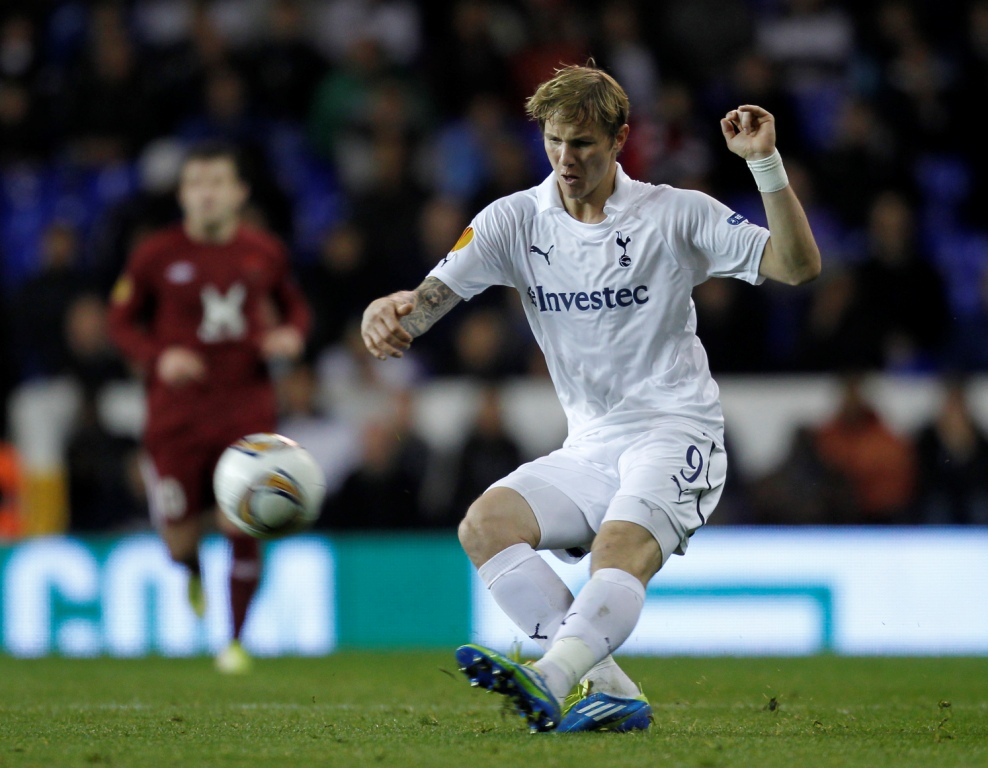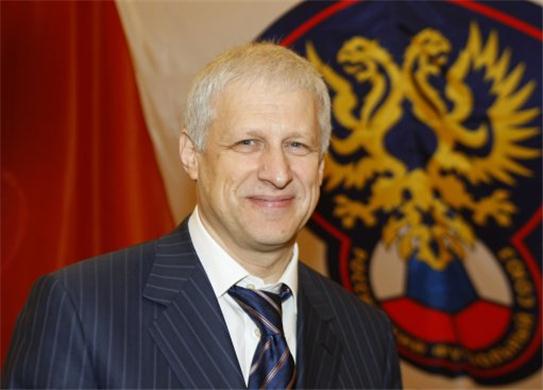By David Gold
February 6 – Russian Football Union (RFU) President Sergey Fursenko is determined that the country becomes a European football superpower, and has underlined their ambition to lift the World Cup on home soil in 2018.
Fursenko was speaking at the annual conference of the RFU, which is celebrating its 100th anniversary this year.
Russia, who have gone out in the group stage on the two occasions they have qualified for the World Cup since the collapse of the Soviet Union, will be hosting the tournament for the first time in their history in six years’ time.
Fursenko is hopeful that success at this summer’s European Championships, being co-hosted by Poland and Ukraine, can help turn the country into a force.
Four years ago Russia were the surprise package of the Euro 2008 tournament in Switzerland and Austria, reaching the semi-finals with a brand of fast but technical play, and were only beaten by eventual winners and current world champions Spain.
“Our main goal is winning the 2018 World Cup, but we approach this task step by step,” Fursenko said.
“The immediate goal is victory at Euro 2012.
“Over the years we have to become a European footballing superpower.”
They will certainly be confident of at least reaching the quarterfinals at Euro 2012 after being drawn in the easiest group along with Poland, Greece and the Czech Republic.
Russia will likely be marginal favourites to win the group but they would come up against Germany, Portugal, the Netherlands or Denmark in what could be a daunting quarterfinal clash.
One cause of contention though, has been the failure of some of the stars of the current team, such as Andrei Arshavin and Roman Pavlyuchenko, to repeat their form in the Premier League with Arsenal and Tottenham respectively.

Arshavin has been marginalised at Arsenal after losing the faith of the fans and seemingly of manager Arsène Wenger following a series of abject displays, while Pavlyuchenko (pictured) recently moved back to Russia with Lokomotiv Moscow.
Diniyar Bilyaletdinov is another who failed to show his worth in the Premier League at Everton and Yuri Zhirkov had an unsuccessful stint with Chelsea a few years ago.
“Football in England is more athletic and fast, while we have a more intelligent and, well…more spiritual game,” Fursenko insisted.
Those players will likely be out of contention by the time the 2018 World Cup comes around, and key to Russia’s hopes of lifting that World Cup will be the development of youngsters such as CSKA Moscow’s Alan Dzagoev, one of the potential stars of the next generation.
Last year, RFU deputy general secretary Alexander Zorkov revealed to insideworldfootball the organisation’s plans for an identity card system which will monitor 150 youth players from which they hope to find those who can represent Russia at the 2018 World Cup.
Fursenko also praised the performance of the current crop of youngsters, with the under-21 team currently leading their qualifying group the 2013 European Championships in Israel, having won all four games they have played so far.
Contact the writer of this story at zib.l1745243607labto1745243607ofdlr1745243607owedi1745243607sni@d1745243607log.d1745243607ivad1745243607
Related stories
June 2011: Exclusive – ID cards will improve young players in time for 2018 World Cup, claims top official

